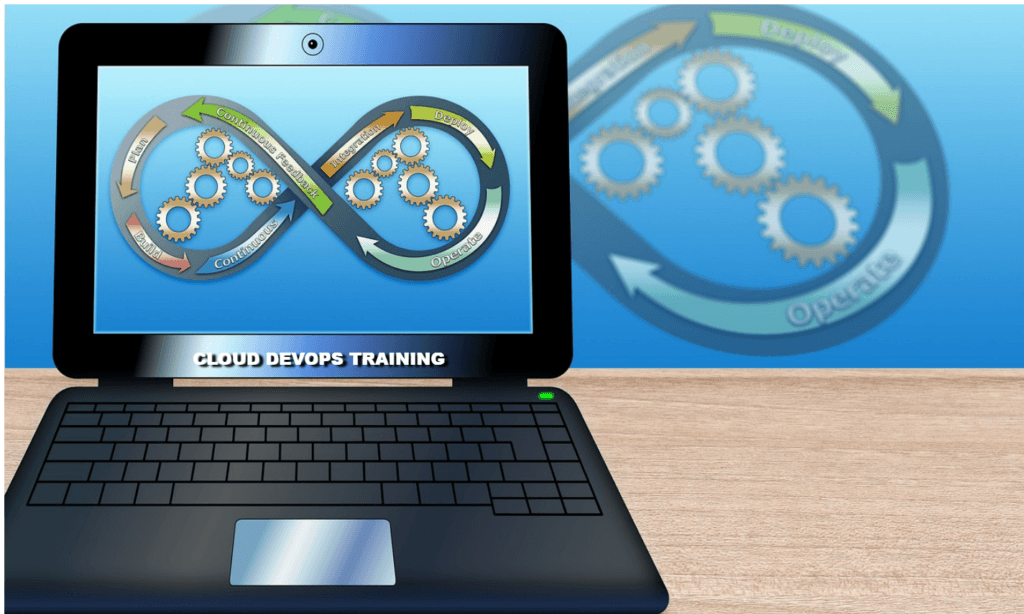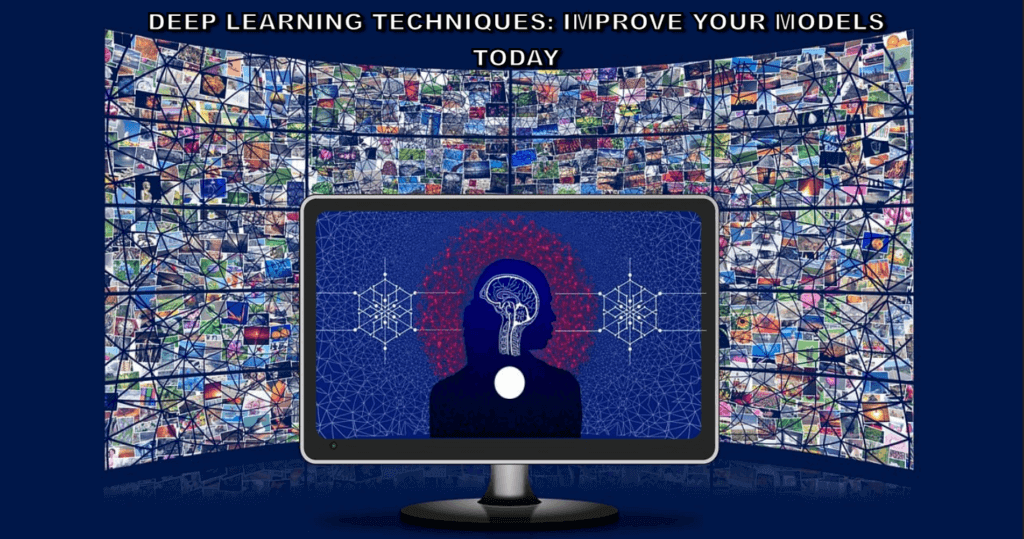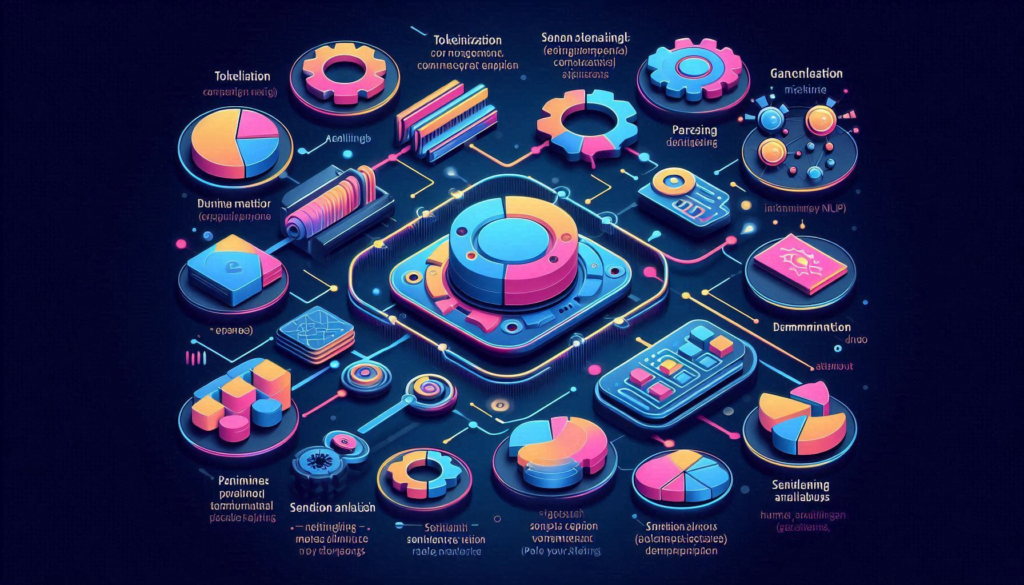At Technology Moment, we’re passionate about helping tech enthusiasts, professionals, and curious minds stay ahead of the curve. Whether you’re just getting started or looking to take your skills to the next level, we bring you expert insights, career guidance, and practical tips to thrive in today’s fast-paced digital world.
In this blog, we’re diving deep into one of the hottest tech trends shaping the IT landscape—Cloud DevOps Training. Discover how getting certified in Cloud DevOps can open doors to exciting career opportunities, higher pay, and a front-row seat in the evolution of modern software development. Ready to future-proof your career? Let’s get started!
What is DevOps?
At its core, DevOps is a culture and set of practices that bring together software development (Dev) and IT operations (Ops). Traditionally, developers wrote code and then handed it off to operations teams to deploy, manage, and maintain. This often led to delays, miscommunication, and production issues.
DevOps changes that by breaking down the walls between teams and encouraging continuous collaboration. The goal? Deliver better software faster and more reliably. It emphasizes:
- Automation (for testing, deployment, and monitoring)
- Continuous Integration and Delivery (CI/CD)
- Shared responsibility between developers and ops
- Faster feedback loops and iterative improvement
It’s not just a job title—it’s a mindset shift that’s transforming how businesses build software.
The Role of Cloud in DevOps
The cloud is like rocket fuel for DevOps. Why? Because it allows teams to deploy infrastructure, scale applications, and test ideas instantly and affordably.
In a DevOps world, developers need environments that can be spun up and torn down quickly. Cloud platforms like AWS, Azure, and Google Cloud Platform (GCP) provide just that.
Some ways cloud supercharges DevOps:
- On-demand infrastructure: No more waiting weeks for servers.
- Global scalability: Apps can serve users around the world with minimal delay.
- Integration with CI/CD tools: Cloud platforms offer native support or integrations with popular DevOps tools.
- Cost efficiency: Pay only for what you use—ideal for rapid testing and iteration.
Why Cloud DevOps is the Future
We’re living in a world where everything—from banking to fitness to food—is digital. That means companies need to:
- Build software faster
- Deploy updates continuously
- Ensure zero downtime
With the rise of remote teams, containerized applications, and AI-driven automation, DevOps powered by cloud infrastructure is more important than ever.
Table of Contents
The Benefits of Cloud DevOps Training
So, why should you even bother with Cloud DevOps training? Here’s why this investment pays off big-time:
High Demand in the Job Market
Companies are scrambling to find skilled DevOps professionals—especially those who know how to work with cloud platforms. According to recent industry surveys, DevOps Engineer ranks among the top 5 most in-demand tech roles.
With more businesses moving their workloads to the cloud, the need for Cloud DevOps experts is only growing.
Attractive Salaries and Career Growth
Let’s be honest—money matters. DevOps professionals often command six-figure salaries, and with the right certifications, those numbers go even higher. You’re not just filling a role; you’re becoming a strategic asset to your company.
- Site Reliability Engineer (SRE)
- Cloud Architect
- Automation Engineer
- DevOps Consultant
Mastering In-Demand Tools and Skills
A good training program teaches you how to use industry-standard tools like:
- Docker & Kubernetes (for containerization)
- Terraform & Ansible (for Infrastructure as Code)
- Jenkins, GitLab CI, GitHub Actions (for automation)
- AWS, Azure, GCP (for cloud deployments)
You’ll also learn soft skills like team collaboration, agile practices, and cross-functional communication—all highly valued by employers.
In short: Cloud DevOps training makes you future-proof.
Key Components of Cloud DevOps
Here are the core building blocks of any solid Cloud DevOps system:
Continuous Integration and Continuous Deployment (CI/CD)
CI/CD is the heartbeat of DevOps. Here’s how it works:
- Continuous Integration: Automated tests run to catch bugs early.
- Continuous Deployment/Delivery: Once the code is tested and approved, it’s automatically pushed to production or staging environments.
This process eliminates bottlenecks, reduces manual errors, and ensures faster delivery of features and fixes.
Infrastructure as Code (IaC)
Gone are the days of manually configuring servers. With IaC tools like Terraform, CloudFormation, and Ansible, you can define your entire infrastructure using code.
Benefits?
- Speed: Spin up environments in minutes.
- Version control: Just like code, you can roll back changes if something breaks.
IaC is a game-changer—and a must-have skill for any Cloud DevOps professional.
Monitoring and Logging
If something goes wrong in production, you need to know immediately. That’s where monitoring and logging come in.
Tools like Prometheus, Grafana, Datadog, and ELK Stack help you:
- Monitor app performance
- Track server health
- Catch anomalies before users do
- Create alerts and dashboards
Remember: You can’t fix what you can’t see.
Collaboration and Communication Tools
DevOps is as much about people as it is about tech. Great teams use tools like:
- Slack or Microsoft Teams for real-time communication
- Jira or Trello for task tracking
- Confluence or Notion for documentation
These tools foster transparency, accountability, and speed—key ingredients in any successful DevOps culture.
Popular Cloud DevOps Platforms
When it comes to mastering Cloud DevOps, the platform you choose can shape your learning and career. Here are the big three dominating the space:

1. AWS DevOps
Amazon Web Services (AWS) is the market leader in cloud computing, and its DevOps tools are second to none. AWS offers services like:
- AWS CodePipeline – for continuous integration and continuous delivery (CI/CD)
- AWS CloudFormation – for Infrastructure as Code (IaC)
- AWS CloudWatch – for monitoring and logging
- Elastic Beanstalk & Lambda – for automating app deployment
If you’re aiming for enterprise-level jobs, knowing AWS is a huge advantage.
2. Microsoft Azure DevOps
- Azure Repos – source control with Git
- Azure Pipelines – for CI/CD automation
- Azure Boards – for agile project management
- Azure Test Plans – for testing workflows
It integrates seamlessly with Visual Studio and Microsoft ecosystems, making it perfect for companies already using Microsoft tools.
3. Google Cloud Platform (GCP) DevOps
GCP is the go-to platform for data-intensive and AI-powered applications. DevOps tools from Google include:
- Cloud Deploy – for automated deployment
- Stackdriver – now part of Operations Suite, for monitoring
- Anthos – for hybrid and multi-cloud Kubernetes
GCP’s DevOps offerings shine when working with containerized applications and Kubernetes.
Top DevOps Certifications to Consider
Certifications validate your skills and can open doors to better roles and salaries. Here are the most respected ones:
1. AWS Certified DevOps Engineer – Professional
Ideal for experienced DevOps professionals. It focuses on:
- CI/CD on AWS
- Monitoring and logging
- Automation using AWS services
- Security best practices
2. Microsoft Certified: DevOps Engineer Expert
This cert is great if you’re already familiar with Azure. It covers:
- Implementing DevOps processes
- Infrastructure as Code
- Agile practices and collaboration tools
Prerequisites: You need to pass either the AZ-104 (Azure Administrator) or AZ-204 (Azure Developer) exam first.
3. Google Professional Cloud DevOps Engineer
Perfect if you’re into automation and cloud-native apps. Topics include:
- Service performance monitoring
- Incident response strategies
- Building CI/CD pipelines on GCP
4. Docker Certified Associate
Docker is the cornerstone of containerization. This certification proves you understand:
- Docker architecture and images
- Orchestration (Swarm and Kubernetes)
- Networking and security configurations
5. Certified Kubernetes Administrator (CKA)
- Cluster architecture
- Deployment and configuration
- Services and networking
- Security and troubleshooting
Choosing the Right Cloud DevOps Training
Picking the right course is crucial for success, and not all training is created equal. Here’s how to make the best choice:
Self-Paced vs Instructor-Led Courses
- Self-Paced: Great for flexible schedules and learning at your own speed. Ideal for motivated, independent learners.
- Instructor-Led: Perfect if you prefer guidance, real-time Q&A, and a classroom-like setting. Often includes live projects and mentorship.
What to Look for in a Good Training Program
A high-quality training program should offer:
- Hands-on Labs – Theory is good, but real skills come from practice.
- Updated Content – Cloud services evolve fast. Make sure the course is current.
- Capstone Projects – Real-world projects help you build a portfolio.
- Certification Prep – If certification is your goal, pick a course that aligns with exam content.
- Peer Community – Access to forums or groups where you can ask questions and network.
Recommended Platforms for Learning
Some popular, trusted platforms for Cloud DevOps training include:
- Udemy – Affordable and packed with instructor-led video content.
- Coursera – Offers professional certificates from big names like Google and AWS.
- Pluralsight – Excellent for deep-dives and learning paths.
- A Cloud Guru – Tailored specifically for cloud certification prep.
- edX – Provides university-level DevOps courses.
Skills You’ll Gain from Cloud DevOps Training
Cloud DevOps training isn’t just about passing a test—it’s about building powerful, real-world skills.
1. Automation and Scripting
You’ll learn to write scripts in Python, Bash, or PowerShell to automate tasks like deployment, configuration, and monitoring.
2. Cloud Infrastructure Management
Training helps you master cloud platforms like AWS, Azure, or GCP—understanding how to deploy, scale, and secure infrastructure efficiently.
3. Security Best Practices
Security is not an afterthought in DevOps. You’ll learn:
- How to manage secrets (e.g., with AWS Secrets Manager)
- Role-based access controls
- Vulnerability scanning and secure deployment practices
4. Agile and DevOps Mindset
DevOps isn’t just tools—it’s a way of thinking. Training instills practices like:
- Agile development and iterative delivery
- Collaboration between dev and ops
- Measuring success through feedback loops and metrics
Real-World Applications of Cloud DevOps
Cloud DevOps isn’t just theory—it’s transforming the way businesses operate every single day. Let’s break it down:
From Development to Production
DevOps bridges the gap between writing code and launching it live. In traditional setups, it could take weeks or even months to get new features into production. But with Cloud DevOps, changes can be tested, integrated, and deployed automatically—sometimes several times a day. This means faster innovation and quicker customer feedback loops.
Speeding Up Software Releases
Time is money, right? DevOps automates repetitive tasks like testing, building, and deploying software. By using CI/CD pipelines, companies can roll out updates at lightning speed—without sacrificing quality. This rapid release model is critical for tech companies and startups trying to stay ahead of the game.
Reducing Downtime and Errors
DevOps encourages a “fail fast, fix fast” mindset. Continuous monitoring tools identify issues before they impact users. Infrastructure as Code (IaC) helps eliminate manual errors, and rollbacks are automated in case something goes wrong. All of this leads to more reliable systems and happier users.
Common Challenges in Learning DevOps
Let’s be honest—DevOps isn’t the easiest thing to learn. But knowing what hurdles to expect can help you power through.
Overwhelming Number of Tools
Beginners often feel paralyzed by the sheer volume of tools out there. The trick? Focus on mastering the fundamentals first, then pick one tool from each category (CI/CD, containerization, cloud, etc.).
Understanding Complex Architectures
DevOps touches many parts of an IT system, from the application layer to the underlying infrastructure. If you don’t have a background in either development or system administration, wrapping your head around these architectures can be a steep learning curve.
Bridging the Developer-Operations Gap
DevOps is all about collaboration, but it’s easier said than done. Developers and ops folks often have very different mindsets. Learning how to “speak both languages” and build empathy between teams is key.
Tips to Succeed in Cloud DevOps Training
Want to make the most of your learning journey?
Start with the Basics
Learn how version control (like Git) works, what a deployment pipeline is, and why infrastructure automation matters. Build a strong foundation before adding complexity.
Build Hands-On Projects
Theory is good, but nothing beats practical experience. Set up your own mini projects—maybe a simple app deployed using Docker and Kubernetes on AWS. This shows employers that you can do more than just talk DevOps—you can walk the walk.
Join DevOps Communities and Forums
You’re not alone in this. There are tons of DevOps communities on Reddit, Discord, Stack Overflow, and LinkedIn. You’ll get answers to tough questions, stay updated on trends, and even make career connections.
How to Get Certified Successfully
Certification can be your ticket to high-paying jobs, but it requires the right approach.
Study Resources and Practice Exams
Start with official study guides and training videos (AWS, Microsoft, Google all provide them). Platforms like A Cloud Guru, Coursera, and Udemy have excellent structured paths. Then test your knowledge with practice exams to identify weak spots.
Lab Practice and Real-World Scenarios
Most certifications don’t just test theory—they test your hands-on skills. Spend time in labs simulating real DevOps environments. Many platforms offer sandbox environments where you can play around without breaking anything important.
Time Management During Preparation
Create a schedule and stick to it. Break down the syllabus into manageable sections. Give yourself deadlines, take regular breaks, and review often. Don’t cram everything last minute—this isn’t a college pop quiz.
Cloud DevOps Career Opportunities
Once you’re trained and certified, the doors open wide. Here’s what’s waiting for you:
Job Roles You Can Pursue
You can step into roles like:
- DevOps Engineer
- Site Reliability Engineer (SRE)
- Cloud Engineer
- Release Manager
- Automation Architect
Each of these roles plays a part in streamlining software delivery and managing cloud infrastructure.
Industries Hiring DevOps Professionals
It’s not just tech companies—DevOps is in demand across healthcare, finance, retail, manufacturing, and more. Any business that uses software (and that’s pretty much everyone) benefits from faster, more reliable deployments.
Freelancing and Remote Work Possibilities
DevOps is a hot skill in the remote job market. Many companies outsource DevOps tasks to freelance consultants and contractors. With a solid portfolio and certifications, you can land gigs on platforms like Upwork, Toptal, or directly with global companies.
Conclusion
For an article on Cloud DevOps Training, here’s how a solid conclusion should work:
Cloud DevOps is not just a buzzword—it’s a career accelerator. With the right training and certification, you can become an in-demand tech professional, capable of managing complex cloud systems and deploying software like a pro. Don’t wait for opportunities—create them. Dive into a Cloud DevOps course, get your certification, and start building your future today.
You want to leave the reader feeling empowered, not overwhelmed. Remind them that learning DevOps is a journey, and every expert was once a beginner.
FAQs (Frequently Asked Questions)
This section is super important because it addresses the most common concerns readers may have, helps improve SEO with relevant queries, and enhances user experience by offering quick, digestible answers.
What prerequisites do I need for Cloud DevOps training?
Basic understanding of software development, IT operations, or networking concepts can help, but even beginners can get started with entry-level courses. Familiarity with Linux and scripting languages like Python or Bash is a bonus.
How long does it take to become certified?
This depends on your experience level and study schedule, but most people can get certified within 2 to 6 months with consistent effort. Some intensive bootcamps even promise results in a few weeks. Just make sure you’re doing hands-on labs and not just watching videos.
Which certification is best for beginners?
For newcomers, the AWS Certified Cloud Practitioner or Microsoft Azure Fundamentals is a great place to start. Once comfortable, you can level up to AWS Certified DevOps Engineer, Google Cloud DevOps Engineer, or Azure DevOps Expert.
Can I learn Cloud DevOps without coding experience?
Yes, you can. While coding helps, many DevOps tools rely more on automation scripts, configurations, and platform knowledge. As you learn, you’ll gradually pick up necessary scripting and automation skills.
Is DevOps a good career in 2025 and beyond?
Absolutely! DevOps is one of the fastest-growing fields in tech. With more companies moving to the cloud and prioritizing continuous deployment, skilled DevOps professionals are in huge demand. Expect this trend to keep rising for years to come.













